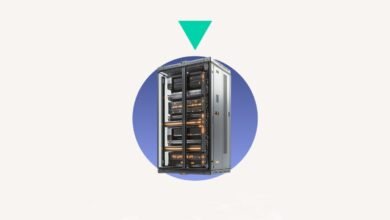GITEX 2025: AI Revolution in Digital Health and Biosciences

▼ Summary
– GITEX GLOBAL 2025 (October 13-17) features over 6,800 exhibitors and focuses on AI-driven healthcare breakthroughs like gene-editing AI and computer-brain implants.
– Day 2 included discussions on nation-scale AI infrastructure, emphasizing quantum computing, cloud, and open-source technologies for economic impact.
– Sustainability challenges in hyperscale data centers were highlighted, noting power shortages and AI’s long-term megatrend potential beyond current hype.
– Robotics innovations were showcased, including humanoid robots for surgical procedures and autonomous vehicles for public safety with real-time monitoring.
– High-profile partnerships were signed, such as Microsoft with Dubai Municipality and Deloitte with IBM, to accelerate AI adoption and tech ecosystem growth.
Scheduled for October 13-17, 2025, GITEX GLOBAL 2025 is poised to redefine the intersection of artificial intelligence and healthcare, showcasing unprecedented advancements in gene-editing AI, computer-brain human implants, and pharmaceutical research powered by a century-spanning database of mammalian resistance. The event’s third day spotlights these digital health and bioscience breakthroughs, signaling a transformative era for AI-driven medical innovation.
Drawing more than 6,800 exhibitors, 2,000 startups, 1,200 investors, and official delegations from over 180 countries, the conference continues to break records in both attendance and global influence. Day two featured a virtual dialogue on “AI-Native Societies” between OpenAI CEO Sam Altman and G42 Group CEO Peng Xiao. This was complemented by insights from leaders at Microsoft, Cisco, Oracle, and other major organizations, who explored the economic, structural, and cultural underpinnings of the intelligence economy.
A central theme of the discussions has been the development of nation-scale AI infrastructures, integrating quantum computing, cloud platforms, data governance, and supportive tech policies to maximize societal and economic benefits. Jim Keller, CEO of Tenstorrent, emphasized the importance of sovereign AI futures, urging nations to build autonomous computing systems through open-source technologies. “Open source enables innovation and ownership, letting you control your own AI intellectual property and shape your technological destiny,” he remarked.
Ana Paula Assis, IBM’s SVP and General Manager for EMEA and growth markets, addressed the synergy between AI and quantum architectures. She explained how quantum systems can parallelize complex operations, achieving in moments what classical computers require years to process. “Deploying AI effectively means balancing user needs with cost efficiency, quantum computing opens doors to solutions previously thought impossible,” Assis noted.
Sustainability and the urgent expansion of hyperscale data centers also took center stage. Paul L. Palandjian, CEO of O’Leary Ventures, highlighted the critical power shortages impacting data center growth, especially in North America. He described the current AI investment climate as “the first half of the first inning in a five-decade megatrend,” acknowledging speculative valuations while affirming the long-term importance of data and energy infrastructure.
In the creative sector, SoundCloud CEO Eliah Seton spoke on AI’s role in music, stressing the need for ethical standards and transparency. “Trust is essential, generative AI must respect intellectual property and human artistry. Proper content identification and AI detection tools are vital to maintaining this balance,” Seton stated.
Across the exhibition floors, enterprise innovation attracted large audiences. Google Cloud demonstrated AI-optimized data analytics and sustainable cloud architectures tailored for the Middle East. Abu Dhabi’s ai71 showcased its applied AI products, with Chief AI Advisory Officer Chiara Marcati noting, “GITEX provides a unique platform to engage with partners and help organizations overcome barriers to AI adoption.”
HPE introduced next-generation offerings, including Morpheus Enterprise and the Sovereign AI Factory, designed to help enterprises deploy scalable, locally governed AI infrastructure. Developer-focused tools from JetRobrains, such as AI coding assistants and integrated development environment services, also drew significant interest for their emphasis on privacy, productivity, and collaboration.
In robotics, Dubai-based Mangobot displayed its A2 humanoid, capable of learning intricate tasks like surgical procedures, alongside its “Wolf Pack” military-grade robotic dogs. Another innovator, Micropolis, unveiled an autonomous vehicle for public safety operations, equipped with AI monitoring to detect threats and report incidents in real time.
The event also facilitated major partnerships to strengthen the regional tech ecosystem. Microsoft and Dubai Municipality agreed on cloud and cybersecurity cooperation, while Deloitte and IBM announced a joint effort to accelerate AI adoption across financial operations and cybersecurity. Additional collaborations, such as the agreement between First Abu Dhabi Bank and the UAE Media Council, underscored the growing synergy between public and private sectors.
(Source: Economy Middle East)





